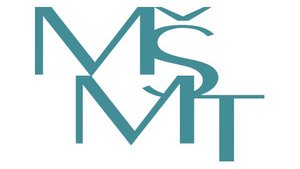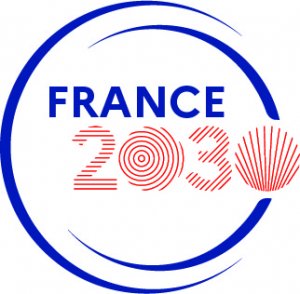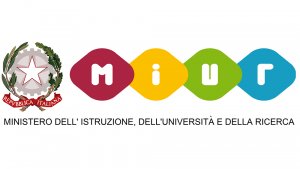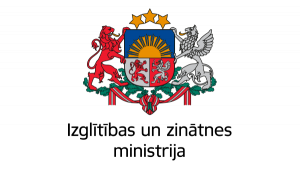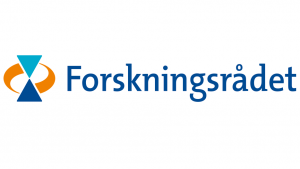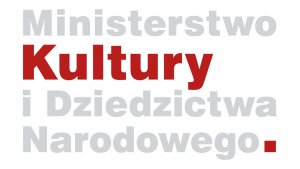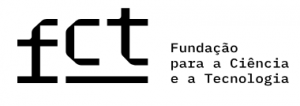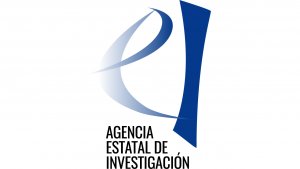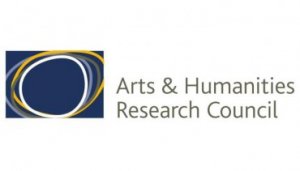JPICH Conservation, Protection and Use Joint Call
The Joint Programming Initiative on Cultural Heritage and Global Change (JPICH) is pleased to announce a new funding opportunity for transnational proposals.
The Conservation, Protection and Use call will support research into strategies, methodologies and tools to safeguard and use the physical components of our cultural heritage. It invites research projects that take a global approach to preserving Europe’s heritage and which result in a better understanding of our history, traditions and culture, of our individual and collective identities, and ultimately of our well-being.
Each project consortium must comprise at least three research teams, each from a different country participating in the JPI CH Conservation, Protection and Use Call and based in an eligible institution. The maximum number of research teams in a project is five.
Only beneficiaries located in the countries participating in the JPI CH Conservation, Protection and Use Call and eligible for the funding organization specified are eligible to apply, irrespective of their nationality.
The countries participating in this call are : Belarus, Cyprus, Czech Republic, France, Italy, Latvia, Norway, Poland, Portugal, Spain, The Netherlands, The United Kingdom.
The call will include four main topics:
- Topic one: Analysing and modelling change
- Topic two: Sustainable protection and enhancement of values
- Topic three: Management of cultural heritage at risk
- Topic four: Layered conservation
The deadline for submission of proposals is 3rd September 2019, 16:00 CEST.
Call for Applications
The purpose of the JPICH ‘Conservation, Protection and Use’ call is to enable the emergence of new research-based frameworks that incorporate knowledge, concepts and values to help manage the ongoing and interlaced changes that affect cultural heritage in relation to its physical and social environment. These changes also affect the way society experiences, appropriates and values cultural heritage. This call invites research projects that contribute to the creation of a sustainable framework for access to cultural heritage and its management, interpretation and protection. The call aims to fund excellent research that is collaborative, transnational, interdisciplinary, inter-institutional, reflexive and innovative.
Cultural heritage is a complex area requiring an interdisciplinary approach and productive collaborations between partners from different countries. Proposals will be expected to integrate and capitalize existing knowledge from a variety of disciplines in order to move the field towards truly interdisciplinary studies on preservation and transmission of cultural heritage from generation to generation. Applicants are encouraged to include in their projects researchers from a range of areas and disciplines rarely associated with research on cultural heritage. They are also encouraged to include diverse stakeholders and end-users in order to foster an implementation-orientated approach, such as cultural organisations, public authorities, community groups and policy-/decision-makers.
Four broad topics essential for our understanding of change and how to manage it are addressed in this call: analysing and modelling change; developing sustainable protection and enhancement of values; management of cultural heritage at risk; layered protection and conservation. Projects funded through this call will contribute to a knowledge- and research- based framework for the understanding, safeguarding, preservation and sustainable use of cultural heritage. Outcomes might include new methods/approaches and/or materials, or the novel application of existing approaches/methodsand/ or materials for the study, understanding, interpretation, presentation, dissemination, conservation, protection and use of cultural heritage. Projects will mainly focus on tangible heritage (including archaeological, movable, built and landscape), whilst also recognizing how intangible and digital heritage play an inseparable role in today’s holistic understanding of cultural heritage in diverse societies. Funded projects should lead to the development of best practices for knowledge-based policies and strategies for access, management, protectionand use of cultural heritage. Day- to-day management as well as management of cultural heritage at times of disaster (man- made or natural) could be considered.
The JPI Cultural Heritage project has received funding from the European Union's Horizon 2020 research and innovation programme under grant agreement No 6995327
The aims of the call are:
- to support well-defined, innovative, reflexive, interdisciplinary, inter-institutional, internationally-focused and collaborative research projects of the highest quality and standards that will lead to significant advances in the conservation and management of cultural heritage across society and research communities, notably through trans- frontier exchange and in international contexts;
- to maximise the value of research outcomes by promoting knowledge exchange, interactions, partnerships and inclusive engagement between cultural heritage researchers, individuals and organisations outside the immediate research community from international to local level, to include policy and decision makers, public authorities, businesses and commercial enterprises, operational and rescue bodies, the broader heritage sector, voluntary and community groups and general public;
- to encourage the implementation and transmission of research outcomes and to communicate them and the knowledge acquired among researchers and stakeholder sectors.
Brought together, the projects supported by this call will, it is hope, achieve a comprehensive view of heritage in terms of:
- i) breadth (museum collections and in situ, urban and rural, ancient and modern, landscapes and archaeological sites, buildings and historic areas, ‘everyday’ as well as special places, heritages of significance to a range of cultures, etc.),
- ii) approach (multidisciplinary collaboration; oral, physical and digital sources),
- iii) temporal scale (understanding changes in past and present conditions; projecting and modelling future changes),
- iv) spatial scale (from invisible to visible, from the local to the regional, national or European)
- v) mode of expression (mainly focussing on tangible heritage, but recognising how intangible and digital heritageare inseparable in today’s holistic understanding of cultural heritage),
- vi) the plurality of values attached to heritage,
- vii) the range of current approaches (notably people-centred paradigms) to heritage planning, conservation and the management of change.
Research Topics
Research into strategies, methodologies and tools to protect and manage the tangible and intangible components of our cultural heritage is crucial for future economic, social and cultural development. Improving sustainable access toheritagewill contribute the well-being and resilience of our societies, as heritage in Europe can promote social cohesion, regeneration, cultural and economic growth. The past is the key to our futures.
The research topics in this JPICH ‘Conservation, Protection and Use’ Call have been drawn from areas identified in the Strategic Research Agenda for the JPI-CH. The focus of this call has been collectively determined by the partner organisations supporting this call.
While applicants will be asked to identify the primary topic addressed by their project, they are not formally required to work on a single one. It is acceptable and encouraged for a project to address issues from more than one of topics described below. Indeed, proposals addressing intersections between topic areas could be particularly fruitful.
The following descriptions include indicative statements and questions which are intended to explain the topics and stimulate proposals, but they are not intended to prescribe, constrain or specify the projects to be funded.
Topic one: “Analysing and modelling change”
The safeguarding and use of Europe’s unique cultural heritage requires new knowledge and relevant methods to respond to changes in global human and environmental conditions. In order to protect and conserve our cultural heritage, we need to understand how processes of change have affected it in the past and how these processes continue to affect it today, and in the future.
Advances in technology and the development of new innovative techniques have revolutionized the level of detail in which we can document our cultural heritage and protect, conserve and use it. Interest in cultural heritage has shifted from preservation of individual cultural objects and monuments towards a stronger focus on the relationship between
cultural heritage and itssurroundings, requiring attention to both the individual tangible object as well as its physical and experienced context.
This topic will stimulate the development, refinement and integration of existing, new or evolving technologies and methods that will transform the way we can study cultural heritage and safeguard their future.
Areas which might be considered are:
- Assessment of the effects of management, use and conservation of historic buildings and/or environments in the past on the current state of cultural heritage.
- How can new technologies and participative models of engagement transform current preventative conservation measures and reactive monitoring processes?
- How can we use data science to process complex data and design user-friendly interfaces for managers, curators, conservators and users of cultural heritage?
- Developing risk assessment methodologies, protocols and open source tools for heritage management.
- What effects, on a multiscale (nano, micro and macro), do the processes of change have on the visible appearance (surface, colors, etc.) of cultural heritage and on the behavior of materials?
Topic two: “Sustainable protection and enhancement of values”
The importance that European citizens attach to cultural heritage demonstrates the societal value of improving the resilience of Europe’s cultural heritage against decay. Research can support ongoing conservation and management of cultural heritageto identify, preserve and where possible enhance heritage values in their totality, whilst also critically reflecting on the divergent, dynamic and sometimes contested values associated with cultural heritages in culturally diverse societies.
Research to generate new knowledge, methodologies and tools to protect and conserve the physical components of our cultural heritage and to explore the potential to enhance protection through use is crucial for the development of a global approach for preserving Europe’s remnants of the past. It will allow cultural heritage to become a key factor for a better understanding histories, traditions and cultures, of individual and collective identities, and ultimately of the well-being of citizens.
To this end, the field needs to explore novel methods to include cultural and social values in heritage management, and to engage diverse publics and raise awareness of issues related to the protection and value – in its broadest sense - of cultural heritage. In particular, this call is intented to stimulate new conservation management strategies involving local communities, and/or co-creation policies that use the available knowledge and capacity in society.
This topic calls for contributions which will generate new knowledge, to develop and strengthen researchers and networks in the area of societal and environmental sustainable protection, management and use of cultural heritage.
Areas which might be considered are:
- Innovative methods to explore people’s responses to cultural heritage, including impacts on health, well-being and integration of plural values through conservation management projects.
- Interdisciplinary approaches to quantifying, assessing and improving the sustainability of conservation and protection practices
- New approaches to encourage dialogue and co-creation between stakeholder and user groups and heritage researchers, conservators and managers on protection and conservation.
- The use of digital methodologies to evaluate the success of conservation management strategies.
- New knowledge and methods to ensure a sustainable protection, development and use of historic built environments. Value creation through the sustainable use of cultural heritage and the potential to enhance protection through use.
- Novel international and interdisciplinary explorations of how to strengthen the links between research, conservation practice and government policy within and across Europe.
- Measures and instruments that can be used to ensure safeguarding of cultural heritage as a basis of developing attractive towns, urban and rural areas, and for value creation in the broadest sense.
- New knowledge and methods of mapping and improving the environmental performance of historically important buildings and environments.
Topic three: “Management of cultural heritage at risk”
Natural and man-made/anthropogenic hazards, particularly worsened by the effects of climate change, are putting European cultural heritage, including landscape, under increasing pressure. In addition, such disasters and catastrophes impose new and continuously changing conservation challenges and create urgentneeds for innovative preservation and safeguarding approaches, particularly during extreme climate conditions.
This topic calls for potential new products, tools and applications purposely developed to strengthen the resilience of cultural heritage in changing environmental conditions. Cross-cutting and user driven approaches are encouraged, alongside pro-active involvement and participation of stakeholders from complementary areas in the disaster risk management cycle (i.e. researchers, rescue bodies, policy and decision makers etc. )
Areas which may be considered are:
- Integration and capitalization of existing research results and tools aimed at the development of multiple risks scenarios and early warning systems for complex systems such as historic centres, archaeological sites, underwater remains, terraced landscapes in urban and rural areas.
- Development of decision support tools for the preservation and management of cultural heritage at risk.
- Enhancing risk preparedness of cultural heritage by the implementation of strategies which should go beyond the mere response to emergency situations.
- Tailoring existing results and outputs in order to integrate them into relevant territorial or thematic policies and strategies for the protection of cultural heritage.
Topic four: “Layered conservation”
The way in which cultural heritage is preserved strongly influences the transmission of the values it represents, its significance, and the experience of diverse publics. Conservators often have to choose between the layers of historical and cultural meaning represented and embodied in cultural heritage, thereby influencing its perception, and changing its future and the way in which different publics relate to it. Thus, they also need to take into account the material history of a work of art, and so often have to choose between its successive states.
The end goal is to take significant steps towards new and innovative strategies for the conservation of layered cultural heritages. This includes better and/or less invasive treatment options with possible retreatabilityand reversibility by developing general methodologies and using novel instruments and applications for understanding, treating, protecting and presenting the layered nature of heritage objects. These steps should also take into account the character, meaning and plural valuesof the heritage under conservation, the management strategies and broader conditions and challenges, so as to enhance sustainability and secure the authenticity. Therefore, it is important to associate professionals of heritage protection to ongoing and future research in cultural heritage.
Areas which might be considered are:
- New quantitative,qualitative and mixed method approaches to ascertain how diverse audiences value layered heritages and how modes of access and conservation influences these values and attributes.
- The development of non-generic and targeted conservation materials and techniques relevant to addressing the challenges and opportunities created by ‘layered heritages’
- The use of technical and/or digital methods to create or enhance a historically layered experience of cultural heritage (for example reconstructions, digital imaging, light projections or virtual reality technologies) which takes into account its successive states.
- Innovative systems to track the effects of specific interventions during treatment in real-time
- Methods and guidelines for the documentation and representation of layered cultural heritage objects and conservation practices to stimulate knowledge exchange and best practices
Eligibility
For this call each individual country’s eligibility rules apply for the teams located in that country. Prior to submitting the proposal, applicants should check the eligibility requirements for each country, which can be found in Annex A along with contact details for Partner organisations in each country.
To be eligible, proposals must be:
- submitted via the JPI Cultural Heritage website before the submission deadline;
- complete and in the prescribed format;
- eligible, with respect to the general eligibility criteria and requirements for this call;
- eligible, with respect to the relevant National Eligibility Requirements.
Projects must not exceed 36 months in duration. Projects must start within 6 months after the funding decision. All research teams within a project consortium must agree on a common starting date of the project.
Eligibility of Applicants
In these guidelines, the term ‘beneficiaries’ refers to a research team consisting of one or more researchers involved in gathering data, information and facts for the advancement of knowledge, or development of tools and methodologies providing they are eligible according to their country’s National Eligibility Requirements (Annex A). Note that the actual eligibility can differ per country.
Please ensure that all researchers in the team are eligible according to their National Eligibility Requirements.
Only beneficiaries located in the countries participating in the JPICH Digital Heritage Call and eligible for the funding organisation specified are eligible to apply, irrespective of their nationality. These are:
- Belarus┋National Academy of Sciences of Belarus (NASB)
- Cyprus┋Research and Innovation Foundation (RIF)
- Czech Republic┋Ministry of Education, Youth and Sports (MEYS)
- France┋Agence Nationale de la Recherche (ANR)
- Italy┋Ministry of Education, Universities and Research (MIUR)
- Latvia┋Ministry of Education and Science of the Republic of Latvia (IZM)
- Norway┋The Research Council of Norway (RCN)
- Poland┋Ministry of Culture and National Heritage (MKiDN)
- Portugal┋Fundação para a Ciência e a Tecnologia (FCT)
- Spain┋State Research Agency (AEI)
- The Netherlands┋The Netherlands Organisation for Scientific Research (NWO)
- The United Kingdom┋Arts and Humanities Research Council (AHRC)
Each project consortium must comprise of at least three research teams, each from a different country participating in the JPICH Digital Heritage Call and based in an eligible institution. The maximum number of research teams in a project is five.
Each research team member must be based at an eligible institution and be considered eligible for funding by the Partner Organisation of the country where s/he is located. Please adhere to the National Eligibility Requirements for the country you reside in (Annex A).
Project Structure and roles of Project Partners
Each project must comprise at least three eligible Principal Investigators (PIs), each based in an eligible institution in a different country participating in the JPICH Conservation, Protection and Use Call. The application must identify one of the Principal Investigators as the Project Leader.
The Project Leader (PL) is responsible for carrying out and managing the project, in addition to her/his project-related research. The PL must be a researcher with solid experience of managing collaborative research projects. S/he will be the contact person for the JPICH Conservation, Protection and Use Handling Partner throughout the application process and is responsible for communication with the other partners in the project. S/he can only apply as PL on a single application. Finally, the PL is responsible for the academic agenda and coherence of the project as well as for all reporting duties.
The Principal Investigators (PIs) are responsible for leading research activities at her/his institution. The PI is also responsible for the administrative and financial management of funds (if successful) that will be transferred to her/his host institution. Other researchers (senior researchers, post-doctoral researchers) can be part of the PI research team – please read the National Eligibility Requirements for each country (Annex A). There can be more than one PI per country but only one PI per institution per project. If there is more than one PI from a country, one of them needs to be identified as the national contact point in the proposal.
An applicant may be involved in a maximum of two JPICH Conservation, Protection and Use proposals as Principal Investigator. A PI is only allowed to be involved in a second proposal provided the following conditions are met:
- the PI needs to inform his/her PLs if s/he is involved in more than one proposal;
- the total number of hours the PI participates in the submitted proposals must be lower than the number of hours s/he can commit.
Associate Partners (AP)
The inclusion of other stakeholders as Associate Partners in a JPICH Conservation, Protection and Use is strongly encouraged in the JPICH Conservation, Protection and Use Call as they can often provide significant added value and valuable insights to the project. They can contribute to a project in an advisory and collaborative capacity to help explore the knowledge transfer/exchange potential and impact of the proposed research. These partners, however, should not have a leading role in the research activities. Their participation is not eligible for funding unless stated otherwise in National Eligibility Requirements (see Annex A). No CVs should be submitted for Associate Partners.
In addition, researchers from non-JPICH Conservation, Protection and Use participating countries can be included in, for example, advisory groups, workshops and so on, and their role can be described in the Description of Work. Their participation is however not eligible for funding unless stated otherwise in the National Eligibility Requirements.
Eligible Costs – Please adhere to all relevant eligibility requirements (Annex A)
The budget for each research team in the project consortium must be eligible according to the relevant National Eligibility Requirements. This means that a research team based in e.g. France, can only apply for costs eligible according to the ANR Eligibility Requirements and that a research team based in e.g. Cyprus can only apply for costs eligible according to RPF.
Research teams can apply for funding up to the relevant national project funding budget limit given in the summary of the national eligibility requirements at the end of this call text and in Annex A.
The requested budgets of each research team in a project consortium must be specified in the relevant national budget template. Please specify the total budget requested per research team, the amount of funding requested from the national Funding Organisation and the possible additional funding and the source by which it is provided. Make sure to use the relevant budget template(s) for proposals as provided on the JPI Cultural Heritage website. Note that some countries require the national budget to be provided in the national currency.
In addition, the project consortium as a whole must fill out the total budget template in Euros in which all budgets of the national research teams are aggregated. Additional funding must also be specified.
A detailed budget justification is required. You are also required to explain the source of any additional funding.
Eligible costs will generally include direct costs such as employment costs, equipment, travel and meeting costs, consumables, dissemination and knowledge transfer costs. Countries differ in the criteria for eligible costs so please read the National Eligibility Requirements in Annex A to verify the eligibility of specific budget items according to the rules of the countries participating in the project.
The budget must include the cost of at least one European trip per PI to present the project in a JPI Cultural Heritage event, to be held during the course of the project.
Countries differ in the available support for non-academic/government/industry partners – please check the National Eligibility Requirements for each country in Annex A.
Recipients of JPICH Conservation, Protection and Use funding are encouraged to use Open Access publishing wherever possible (see section 5. Open Access Publishing). If publishing under ‘author pays’ model is foreseen during the application phase, the related costs should be included in the budget. Costs must be realistic, justified/substantiated and eligible according to the National Eligibility Requirements.
Call Timetable
- Launch of the JPICH Call 13 May 2019
- Deadline for submission of proposals 3 September 2019
- General Eligibility check 4-11 September 2019
- National Eligibility checks 12-19 September 2019
- Evaluation of eligible proposals by independent international Assessment Panel 20 September-18 October 2019
- Independent International Assessment Panel meeting First week of November 2019
- Funding decision First week of December 2019
- JPICH Conservation, Protection and Use project start 1 January - 1 July 2019
The assessment of proposals
All aspects of the proposals will be assessed against all the evaluation criteria and applicants should ensure that the information in the Description of Work addresses all the requirements under each of the criteria.
The assessment of proposals will be undertaken remotely by independent international peer reviewers with expertise in the field(s) of research relevant to the proposal. After the independent experts have carried out a remote evaluation of the proposal, an independent International Assessment Panel will meet to discuss and agree a final score for each proposal, which will determine a ranking list.
The JPICH Digital Heritage Management Group will make the actual funding decision based on the recommendations and ranking list determined by the independent International Assessment Panel. The JPICH Digital Heritage Management Group will ensure the fair and equitable nature of the evaluation and selection process and its compliance with the JPICH Digital Heritage and JPI guidelines.
Evaluation criteria
Eligible proposals will be assessed against the following, European Commission supported, evaluation criteria:
Research excellence - the quality of the transnational project (Threshold/Score 3/5)
- Sound concept, and quality of research questions and objectives
- Fit to the aims and topics of JPICH Conservation, Protection and Use
- Progress beyond the state-of-the-art
- Quality and effectiveness of the research, methodology and interdisciplinary approach, and associated work plan
Potential impact (Threshold/Score 3/5)
- Likelihood that the outputs and outcomes will be highly valued and used by researchers, non-academic stakeholders and society, including SMEs, heritage own ers, public administrations, research partners and local communities.
- Appropriateness of measures for the dissemination and/or exploitation of JPICH Digital Heritage project results, and management of intellectual property.
Quality and efficiency of the implementation and the management (Threshold/Score 3/5)
- Appropriateness of the management structure and procedures
- Relevant expertise and experience of the individual participants (including experience of coordinating research across national boundaries)
- Quality of the consortium as a whole (including complementarity, balance between disciplines, level of staffing, plans for effective collaboration), including other stakeholders
- Appropriate allocation and justification of the resources to be committed (budget, staff, equipment)
Only proposals passing the threshold for each of the evaluation criteria and scoring a minimum of 11 out of 15 points in total can be considered eligible for funding.


